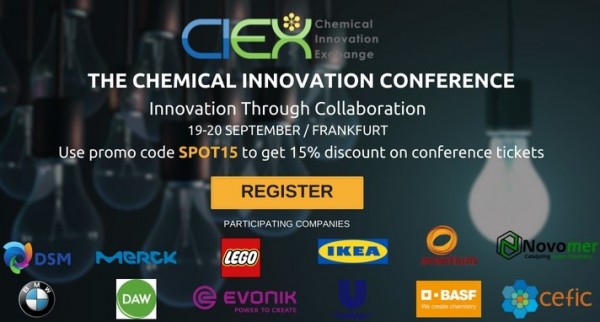‘Knowledge is power’, said the philosopher and essayist Francis Bacon; and he should know, as he was very knowledgeable indeed.
And if this was true in 17th century England, when Bacon first wrote those words, it is definitely true now. In an age of hacking, industrial espionage, trade secrets, and confidentiality clauses, the chemical industry has become a highly secretive place. Raw material sources are kept secret, prices are ‘upon request’, and chemical formulas are locked in vaults (patent pending).
Yet, with public concern growing over the chemicals used to make everyday products, chemical companies are finding themselves in an increasingly defensive media war.
As the news industry struggles to maintain 24-hour news feeds, Tweets, and minute by minute coverage of events, media outlets are heading towards the ‘shock and horror’ stories that gain clicks and advertising revenue. Chemical leaks, factory explosions, oil spills, and expensive legal cases against chemical producers are all targets for such negative coverage.
Added to this negative façade that the chemical industry wears, are true global concerns of climate change and the circular economy.
Unfortunately, public perception of the chemical industry’s impact on the environment is equally destructive.
As a result, there are signs that the chemical industry has begun to ‘circle the wagons’ and is now acting more as a team. It is beginning to see the benefits of cooperation.
As the World Business Council on Sustainable Development reports, “To deal with the coming challenges, a multi-stakeholder approach is required. Companies in value chains can, for example, combine their data to calculate the ‘avoided greenhouse gas (GHG)’ emissions because of the use of chemicals in their value chain.”
Similarly, in a recent interview, Thomas Arnold, CEO of the chemical manufacturer Biesterfeld, outlined his ideas on the importance of chemical industry cooperation prior to the 2018 Annual Congress of The European Association of Chemical Distributors (FECC). Here he stated that, “it is important to discuss new ideas, strategies and market potentials with our partners and to be open for business expansion and innovative solutions. To mutually benefit from a long-term business partnership, we need to rely on each other and continuously work on boosting our relationship.”
At the same event Karsten Beckmann, a member of the management board at Brenntag, had similar thoughts, stating that, “As in each partnership trust is an integral part – this also applies for chemical distribution. For us it is crucial to listen to the individual needs of customers and suppliers in order to be able to offer them the solution they need. It is all about communication, coordination and flexibility.”
As Jens Cornelissen, general manager of the Merlien Institute, notes, “Rather than guarding innovations behind locked doors, organisations are increasingly understanding and embracing the value behind more open approaches for driving innovation. Alongside this emerging – and increasingly ‘open’- mindset towards innovation approaches, comes a need to assess how innovation is spearheaded and implemented across the organisation. This entails reviewing, and potentially transforming, innovation frameworks, processes, and expectations to ensure excellent commercial outcomes.”
Meanwhile the global trend of adopting shared databases on chemical safety, such as REACH, is widely seen as being a huge benefit to chemical companies in those regions fortunate to have one.
Even China’s current 5-Year Plan is relocating chemical businesses to chemical parks to ‘enhance innovation and synergies between material flows, logistics, engineering and environmental protection’.
No one, however, can deny the power and profit to be made from the knowledge of individual chemical products. Where would Chemours be without the patented knowledge of Teflon, or DuPont without Nylon? But beyond reaping the benefits of R&D, cooperation can aid chemical companies in the greater challenges of the 21st century; the circular economy, legislation, public image, trade, & climate change.
So, is knowledge power? Maybe, but increasingly in the chemical industry, shared knowledge leads to greater power.
Like many chemical industry leaders, international experts and innovative thinkers, Jens Cornelissen will be attending CIEX 2018 being held in Frankfurt on September 19th and 20th. The event has been created for R&D and innovation experts from the consumer, industrial and specialty chemical sectors, and is a unique platform for participants to learn, exchange ideas, and collaborate.
Photo credit: Freeimages


